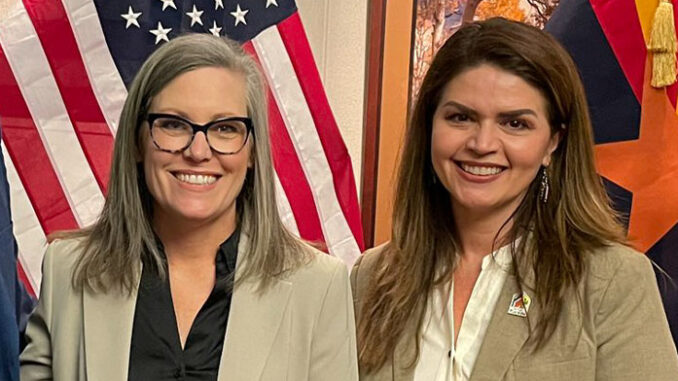
In the United States of America, we have “governors.” Governors administer the existing government apparatus. They do not make laws, they administer them. The President of the United States, state governors, and mayors are governors in the broad sense. What we do not have are “rulers.” Rulers are different in that their authority is absolute and unlimited. They are not restricted to administration – they make their own laws then see that they are enforced.
Sometimes our leaders straddle the gap between governors and rulers. That temptation is always there. It is often innocent enough. An administrator might think, “If I could just expand the borders of my authority, how much more could I achieve?!” Our administrator is correct – he achieves more. The danger is that with each success his thirst for expanding his authority grows, and ruling begins to look a lot better than governing.
You know that this is happening when the governor/mayor abandons serving people by helping them live their lives, and instead he “serves” them by deciding on which kind of life they should lead. If he is clever, he will invoke an imminent catastrophe as justification, and to preemptively stifle criticism.
In Tucson’s “climate action and adaptation” plan called “Tucson Resilient Together,” the 15 Minute City concept is mentioned specifically, “…the greatest progress will come from shifting our land use and development practices around the principle of a ‘15-minute city.’” (Tucson Resilient Together 137).
The 15 Minute City Project is the brainchild of urbanist Dan Luscher of San Francisco. According to his website, 15minutecity.com, “Everyone living in a city should have access to essential urban services within a 15 minute walk or bike.”
What does this mean distance wise? Let’s look at the faster mode. According to truecommuter.com, the average speed of a bicycle commuter is twelve miles per hour. So, in fifteen minutes, the average bicycle commuter will travel three miles. Most healthy people walk at a rate around two to three miles per hour, making the fifteen minute distance less than one mile.
The question that should concern Tucson’s elected officials is not whether or not the 15 Minute City idea is a good concept generally speaking. The question with which our elected officials should be concerned is whether or not it is good, or even feasible, for Tucson.
Many people point to cities that have met with some success implementing the 15 Minute City concept, most of which are in Europe. Why Europe? European cities have very dense populations. Why are their populations so dense? They became full fledged cities before automobiles became the primary mode of transportation.
The Old Pueblo (Tucson) is in fact old, but it did not become a fully fledged city until after virtually everyone was driving a car. As a result, our density is relatively low. It also means that we can choose where we live because we have access to all points in metro Tucson, thanks to our automobiles. We are not restricted to one or two grocery stores, one or two restaurants, or whatever job we might find within a three mile radius. We have personal, on demand, transportation that can take us anywhere we want to be in the metro area; and we also have bicycle paths, walkways, and our roads have bike lanes and sidewalks. We already have it all. We have a choice! Remember choice?
Of course, this is not news, we already know it. So why are our elected officials dead set on implementing this concept that is clearly inappropriate for our town? I think that there are two reasons.
I mentioned the difference between governing and ruling.
Government officials of the ruling type tend to have a condescending attitude toward their constituents. They do not see the point of everyone driving all over town. They might think to themselves, “Why don’t they just walk to the grocer and the bar, and we will give them a free bus ride to go to work?” They wish for the little people that which they would not consider for themselves. There is another official of the ruling type. That other official has adopted his politics as his religion. Policy is not based on sound governance, evidence, or what has worked in the past; rather, it is based on edicts passed down from the “clergy.” It is an easy path since the edicts are never wrong, even if disastrous in practice. Those within the same religion will defend its policies regardless of the outcomes.
A good governor maintains an environment in which his constituents may choose their own goals, live their own lives, and care for their families as they see fit. A good governor understands that more opportunity and more choice are better. Local startup businesses are more likely to succeed when their market is the entirety of Metro Tucson, not just their neighborhoods. Individuals will find more variety of products and services across Metro Tucson than they will find in their neighborhoods. When people have friends, business associates, and other relationships in the broader community, it will help bring our community together.
If you agree, when the next election rolls around, cut a check to the good governor candidate, talk to your friends about the good governor candidate, then vote for that candidate.
References:
https://www.tucsonaz.gov/files/caap/TucsonResilientTogether_20230228.pdf
